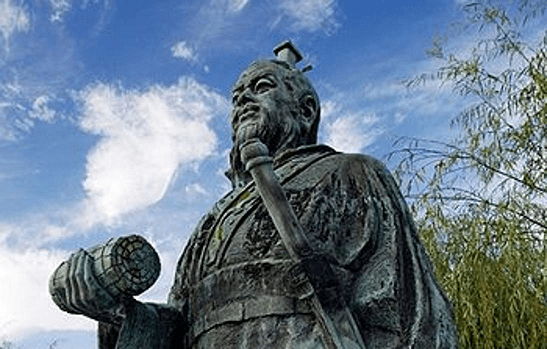Have you ever been fascinated by the mysterious world of spies? Have you ever wondered what is hidden behind the curtains of intrigues and secrets? If so, you are in the right place. In this article, we invite you to enter a universe full of hidden codes, encrypted messages, and characters shrouded in mystery. Beyond the image that movies offer us, there is a complex and fascinating reality surrounding the figure of the spy.
We are going to reveal the subtleties of espionage, from the strategies of Sun Tzu, going through the lives of the most famous people in history, up to the most renowned intelligence agencies in Europe. But that's not all, we will also delve into the answers to the most frequent questions that we all ask ourselves about this exciting topic. Are you ready to unravel the secrets of espionage? Here we go!
Sun Tzu's Art of Espionage
Beyond the battlefield, strategy and intelligence play a key role in any conflict. One of the first to understand and emphasize this fact was Sun Tzu, the famous Chinese military strategist and author of the book “The Art of War”. Sun Tzu gave espionage a central role in his strategies, making it an essential element for military success. His thinking in this regard is based on the differentiation of five classes of spies, which we are going to explore below.

Local spies
Local spies are people from the place where the spy operation is taking place. Their knowledge of the terrain and their ability to blend in make them extremely valuable. A historical example of this type of spy would be the local informants who worked for the Allied forces during World War II, providing crucial information on the positions and movements of enemy forces.
Internal spies
Insider spies are individuals who are part of the enemy organization or government. Their position allows them to have access to highly sensitive and confidential information. Often these spies are recruited or coerced into working for the other side. An emblematic case of internal spies are those of the so-called "Cambridge Circle", a group of British spies who worked for the Soviet Union during the Cold War.
Spies turned
Turn Spies are captured enemies who have been persuaded to work on behalf of those who captured them. These types of spies can be incredibly valuable due to their access and inside knowledge of the enemy. A notable example of a turned spy is Oleg Gordievsky, a high-ranking KGB officer who was turned by Britain's MI6 and provided vital information during the Cold War.
Survival Spies
Survival Spies are agents who are sent into enemy territory for the purpose of gathering information. Their name comes from the fact that they must survive in enemy territory for long periods of time. Virginia Hall, considered one of the most important spies of World War II, may be an example of a survival spy. Working for the US Office of Strategic Services, Hall operated in Nazi-occupied France for over a year, organizing and coordinating the local resistance.
Death Spies
Death spies are those who gather information knowing that, once discovered, their fate will almost certainly be death. Sun Tzu himself described them as agents who infiltrate enemy ranks to spread disinformation, sow discord and sabotage operations. The famous American Civil War spy Harriet Tubman could be considered an example of this type of spy. Tubman led reconnaissance missions into enemy territory, providing critical information to Union forces, even though discovery would have meant certain death.
The Masters of Disguise: Famous Spies Throughout History
In the long history of espionage, some figures stand out for their daring, resourcefulness, and contribution to the art of deception. In this section, we are going to dive into the fascinating lives of some of the most famous spies in history.
Mata Hari: The Seductive Spy
Mata Hari, whose real name was Margaretha Geertruida Zelle, was a famous exotic dancer and courtesan of the early 20th century. Her charms and her talent for seduction led her into a world of international intrigue during World War I. Working for Germany as a spy, Hari became a mysterious and evocative figure. However, she was arrested by the French in 1917, convicted of espionage and executed. Her life and her death have fueled numerous legends and continue to fascinate audiences more than a century later.
Kim Philby: The Cambridge Traitor
Harold Adrian Russell "Kim" Philby is one of the most famous (or infamous) spies of the Cold War. A member of the now notorious spy group known as the "Cambridge Five", Philby worked for Britain's MI6 while acting as a double agent for the Soviet Union. For decades, Philby passed crucial information to the KGB, including details about NATO strategy and Western intelligence operations. His betrayal was finally discovered in 1963, but he managed to escape to Moscow before he could be arrested.
Aldrich Ames: The CIA Mole
Aldrich Ames, a former CIA officer, is one of the most notorious spies in American history. From his position with the CIA, Ames spied for the Soviet Union for nearly a decade before being discovered in 1994. During this time, Ames compromised a number of CIA intelligence operations and revealed the identity of various US intelligence sources. in the Soviet Union, many of whom were later executed. Ames was sentenced to life in prison in 1994 and remains in prison today.

Julius and Ethel Rosenberg: The Atomic Traitors
Julius and Ethel Rosenberg were an American couple who were convicted and executed in 1953 for spying for the Soviet Union. The Rosenbergs were accused of passing information about the atomic bomb to the Soviets during World War II, in one of the most controversial cases of the Cold War. Despite protests and international calls for clemency, the Rosenbergs were executed in the electric chair, becoming the only US citizens to have been executed for espionage during peace.
Sidney Reilly: The Real James Bond
Sidney Reilly, sometimes called "the best of spies", was a Russian-born British secret agent operating in the early 20th century. His life is shrouded in mystery and legend, with stories of his bravery and cunning that rival any spy fiction. Reilly is believed to have played a crucial role in several major geopolitical events, including the downfall of Russian Czar Nicholas II. His life and exploits have inspired numerous works of fiction, including Ian Fleming's James Bond character.
In the spotlight: European intelligence agencies
The world of intelligence and espionage is vast, and each country has its own organization responsible for this work. In this section, we will focus on the intelligence agencies of some European countries, exploring their histories, functions and relevant facts.
National Intelligence Center (CNI) - Spain
The National Intelligence Center (CNI) is the Spanish intelligence agency, created in 2002 to succeed the former Center for Defense Information (CESID). The CNI is in charge of providing the Spanish Government with the information, andl Analysis and proposal of actions that are necessary to prevent and avoid any danger, threat or aggression against the independence or territorial integrity of Spain, national interests and the stability of the rule of law and its institutions.

Secret Intelligence Service (SIS/MI6) - United Kingdom
The Secret Intelligence Service, commonly known as MI6, is the foreign intelligence agency of the United Kingdom. Founded in 1909 to provide the British government with foreign intelligence, MI6 has become a mainstay of British intelligence. The agency has played a central role in numerous global events throughout the 20th and 21st centuries. With a wide range of responsibilities including foreign intelligence gathering, covert operations and counter-intelligence, MI6 remains a vital part of UK security.

Directorate Générale de la Sécurité Extérieure (DGSE) - France
The Direction Générale de la Sécurité Extérieure, better known as DGSE, is France's foreign intelligence agency. Founded in 1982, the DGSE is responsible for the collection of intelligence from foreign sources for the defense and national security of France. His responsibilities also include counterintelligence on French territory against foreign espionage. The DGSE has played a fundamental role in defending French interests internationally, with operations ranging from the fight against terrorism to the protection of French industrial and commercial secrets.

Bundesnachrichtendienst (BND) - Germany
The Bundesnachrichtendienst, or BND, is Germany's foreign intelligence agency. Created in 1956 during the Cold War, the BND has been responsible for collecting information on a variety of threats against Germany, from espionage to terrorism. Over the years, the BND has been involved in a number of major operations and events, including the Cuban Missile Crisis, German reunification, and the fight against global terrorism in the 21st century. The BND continues to play an important role in the security and defense of Germany and its allies.

Portuguese Republic Information System (SIRP) - Portugal
The Sistema de Informações da República Portuguesa (SIRP) is the entity in charge of civil and military intelligence in Portugal. This institution was created in 1984, and is made up of two agencies: the Serviço de Informações de Segurança (SIS), which deals with internal intelligence, and the Serviço de Informações Estratégicas de Defesa (SIED), which manages external intelligence. Both agencies work together to guarantee national security, prevent threats and provide relevant information to the Portuguese government.

Agenzia Informazioni e Sicurezza Esterna (AISE) - Italy
The Agenzia Informazioni e Sicurezza Esterna (AISE) is the foreign intelligence agency of Italy, created in 2007 to succeed the Servizio per le Informazioni and the Sicurezza Militare (SISMI). AISE has a responsibility to protect thes Italian political, military, economic, scientific and technological interests abroad. This includes gathering information, conducting covert operations and cooperating with other international intelligence agencies to ensure the safety of Italy and its citizens around the world.

Clearing the Fog: Espionage FAQ
Espionage is a fascinating and mysterious subject that is often fraught with questions. Next, we try to answer some of the most frequent questions about the world of spies.
What is a spy?
A spy is a person who secretly obtains confidential or classified information without the permission of the holders of such information. Spies can work for governments, companies, or even on their own. Its goal is to collect intelligence that can be used for various purposes, such as national defense, politics, or competitive advantage in business.
How does one become a spy?
The path to becoming a spy varies depending on the agency and the country. In general, it requires a combination of education, special skills (such as languages or technical knowledge), and a rigorous selection process that may include background checks, psychological and physical tests, and intensive training in espionage. and survival techniques. It is a demanding and often dangerous path, but it can also be incredibly rewarding for those seeking a life of adventure and service.
What skills does a spy need?
A spy needs a wide range of skills. First, they must be able to observe and remember minute details. They also need strong communication skills to interact with a variety of people and to be able to extract information from them. Language skills are often critical, as is the ability to work well under pressure. In addition, technical skills, such as knowledge of information technology and cryptography, are also essential in modern espionage.
Is spying legal?
The legality of espionage depends on the context. Generally speaking, espionage on behalf of a government may be legal within that country. However, being caught as a spy in a foreign country can have serious legal consequences, including imprisonment and the death penalty. In addition, corporate or industrial espionage is illegal in many countries, and can result in criminal and civil penalties.
How is intelligence collected?
The collection of intelligence information can be done through a variety of methods. These include physical surveillance, interception of communications, hacking of computer systems, infiltration of target organizations, and the recruitment of human sources to provide information. Intelligence can also be collected through open sources such as the media and social media. The information collected is then analyzed to identify patterns and gain useful insight.
What is counterintelligence?
Counter-intelligence refers to actions taken to prevent espionage and other enemy intelligence activities. This may involve identifying and neutralizing enemy spies, protecting classified information, and implementing security measures to prevent espionage. Counterintelligence can also include disinformation, in which false information is fed to enemy spies to confuse or mislead enemy intelligence agencies.
What are the risks of being a spy?
Being a spy can be a dangerous occupation. Spies risk being caught and imprisoned, and in some jurisdictions, may face the penalty ofand death. Also, the secretive nature of the job can cause stress and isolation. There can also be mental health risks, given the need to keep secrets and lead a double life. Finally, spies may find it difficult to re-enter normal life once their espionage career is over.
What makes a spy different from a detective?
Although spies and detectives can be involved in intelligence gathering activities, there are key differences between the two roles. Spies typically work for government intelligence agencies dealing with national and international security issues, while detectives typically work in law enforcement, collecting evidence for use in court. Furthermore, while detectives operate in the open and their activities are protected by law, spies often work in secret and their activities may be illegal in the countries where they operate.
How do spies communicate?
Spies use a variety of methods to communicate, often depending on the level of security and discretion required. In the past, spies used codes and encryption to send secret messages. Today, with the advancement of technology, spies can use more sophisticated means of communication, including encrypted communications over the Internet. However, despite modern technology, traditional methods such as using "dead boxes" - places where messages or packages can be left to be picked up by another spy - are still used due to their effectiveness.
Do spies use gadgets like in the movies?
While movies often exaggerate spies' use of high-tech gadgets, the reality is that spies do use a variety of technological tools to aid them in their job. This may include surveillance devices and the collection of information, such as hidden cameras, voice recorders, tools for encryption and decryption of messages, and equipment for the identification and tracking of people or objects. However, these gadgets are often more discreet and practical in real life than they appear in the movies.
Conclusion: The Intersection of Fact and Fiction in Espionage
In the plot of the story, espionage has played a leading role on multiple occasions, sometimes drastically changing the course of events. Although we often associate espionage with the plots of movies or novels, the reality is that it is very present in our world. From the concepts of Sun Tzu to the most famous spies, passing through the European intelligence agencies, we have traveled a fascinating path through the world of espionage. We hope this article has given you a deeper and more realistic perspective of what it entails to be a spy and how this intriguing world works. Espionage undoubtedly goes beyond fiction.






 WhatsApp
WhatsApp Telegram
Telegram


